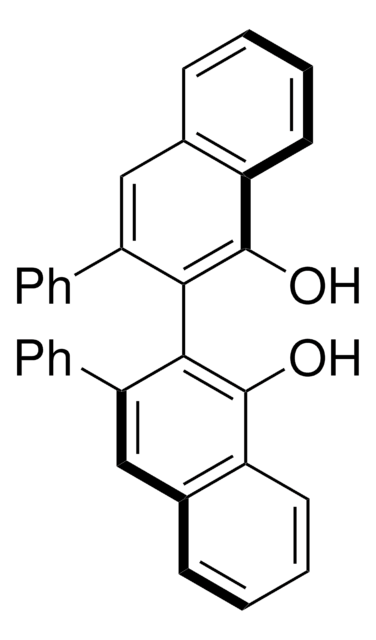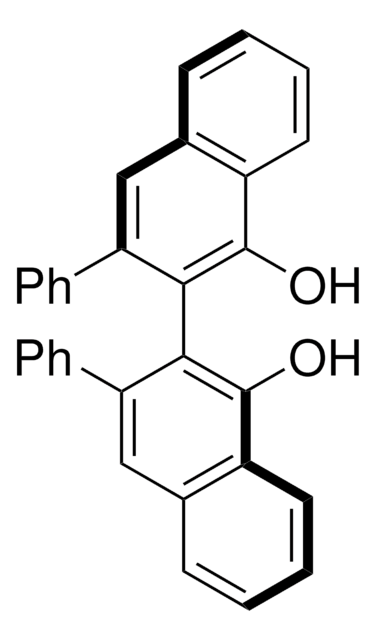675210
(R)-VAPOL
97%
Synonym(s):
(R)-2,2′-Diphenyl-3,3′-(4-biphenanthrol)
About This Item
Recommended Products
Assay
97%
optical activity
[α]20/D -144°, c = 1 in chloroform
mp
225-229 °C
SMILES string
Oc1c(c(cc2ccc3ccccc3c12)-c4ccccc4)-c5c(O)c6c(ccc7ccccc67)cc5-c8ccccc8
InChI
1S/C40H26O2/c41-39-35-29(21-19-27-15-7-9-17-31(27)35)23-33(25-11-3-1-4-12-25)37(39)38-34(26-13-5-2-6-14-26)24-30-22-20-28-16-8-10-18-32(28)36(30)40(38)42/h1-24,41-42H
InChI key
UFYXKDMLGBKHIC-UHFFFAOYSA-N
Related Categories
Application
Signal Word
Danger
Hazard Statements
Precautionary Statements
Hazard Classifications
Carc. 2 - Eye Dam. 1 - Skin Irrit. 2 - STOT SE 3
Target Organs
Respiratory system
Storage Class Code
11 - Combustible Solids
WGK
WGK 3
Flash Point(F)
Not applicable
Flash Point(C)
Not applicable
Certificates of Analysis (COA)
Search for Certificates of Analysis (COA) by entering the products Lot/Batch Number. Lot and Batch Numbers can be found on a product’s label following the words ‘Lot’ or ‘Batch’.
Already Own This Product?
Find documentation for the products that you have recently purchased in the Document Library.
Customers Also Viewed
Related Content
The research areas of interest to the Wulff group include enantioselective catalysis, mechanisms of asymmetric catalysis, macromolecular chemistry, Fischer carbene complexes in organic synthesis and the total synthesis of natural products.
Our team of scientists has experience in all areas of research including Life Science, Material Science, Chemical Synthesis, Chromatography, Analytical and many others.
Contact Technical Service













